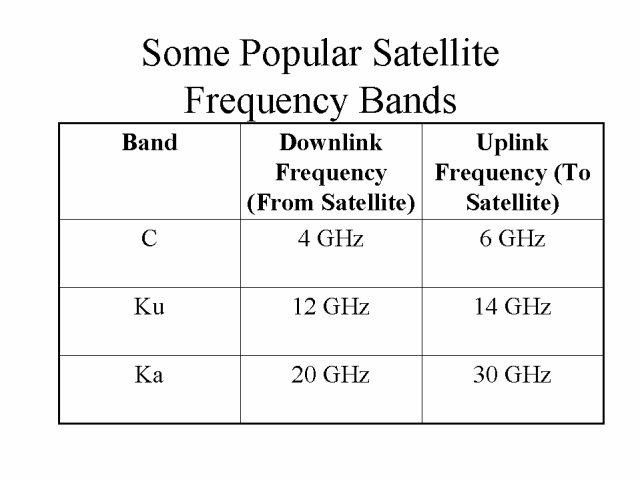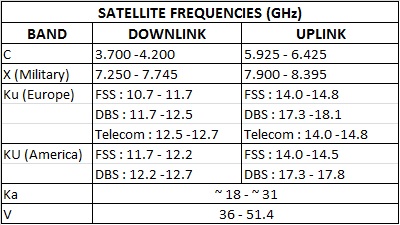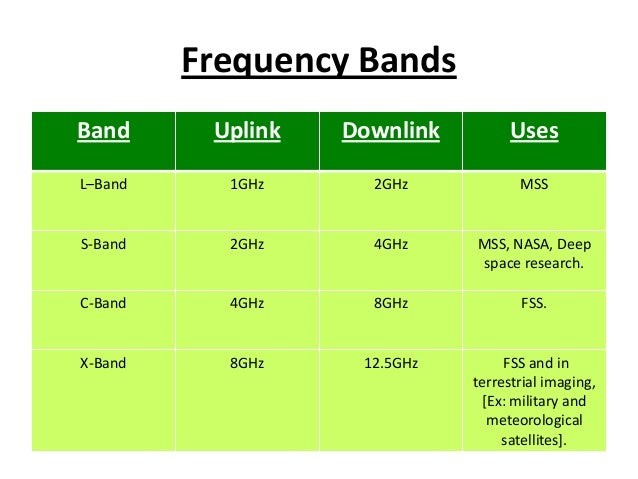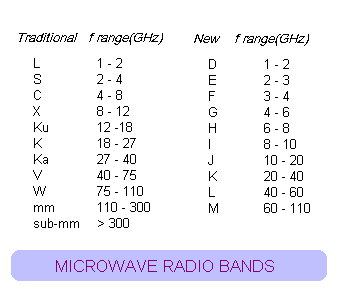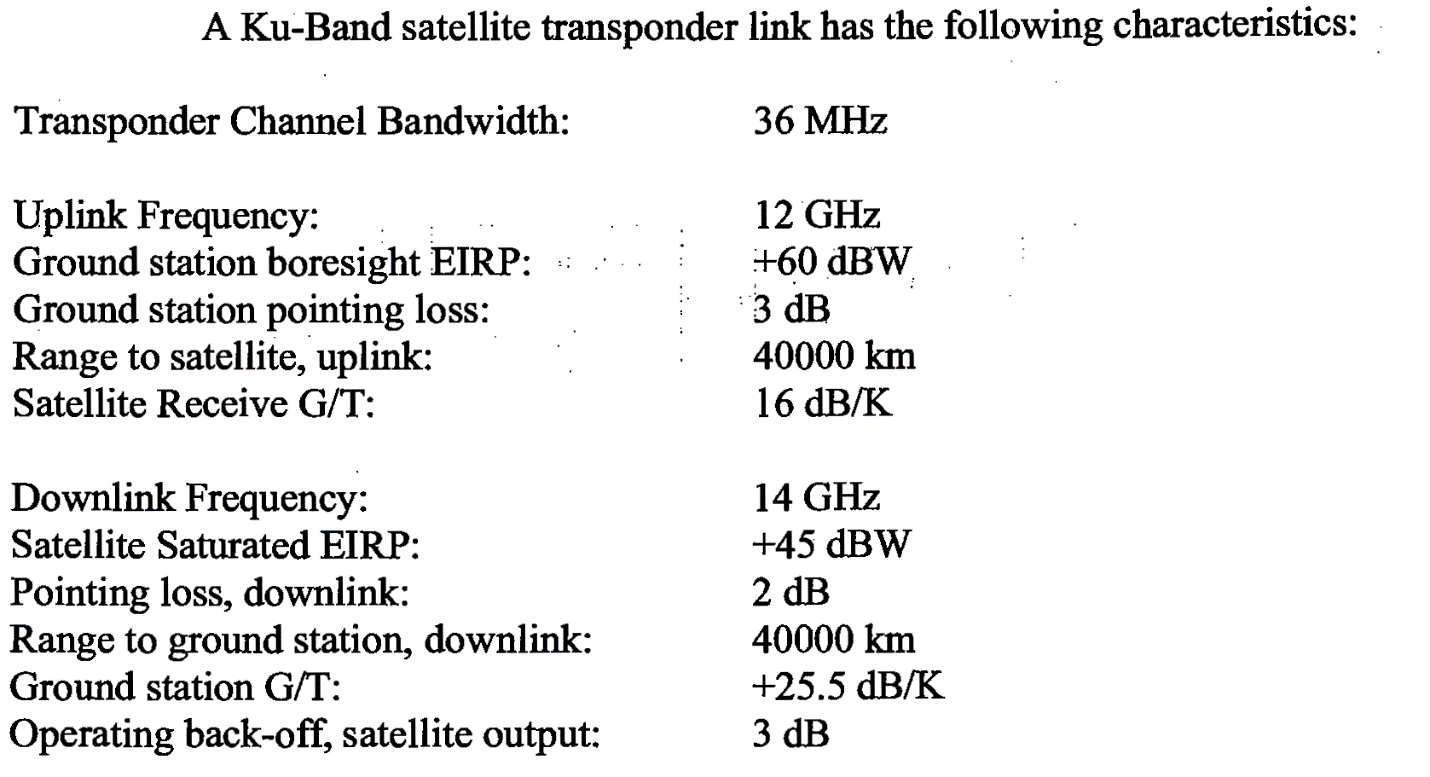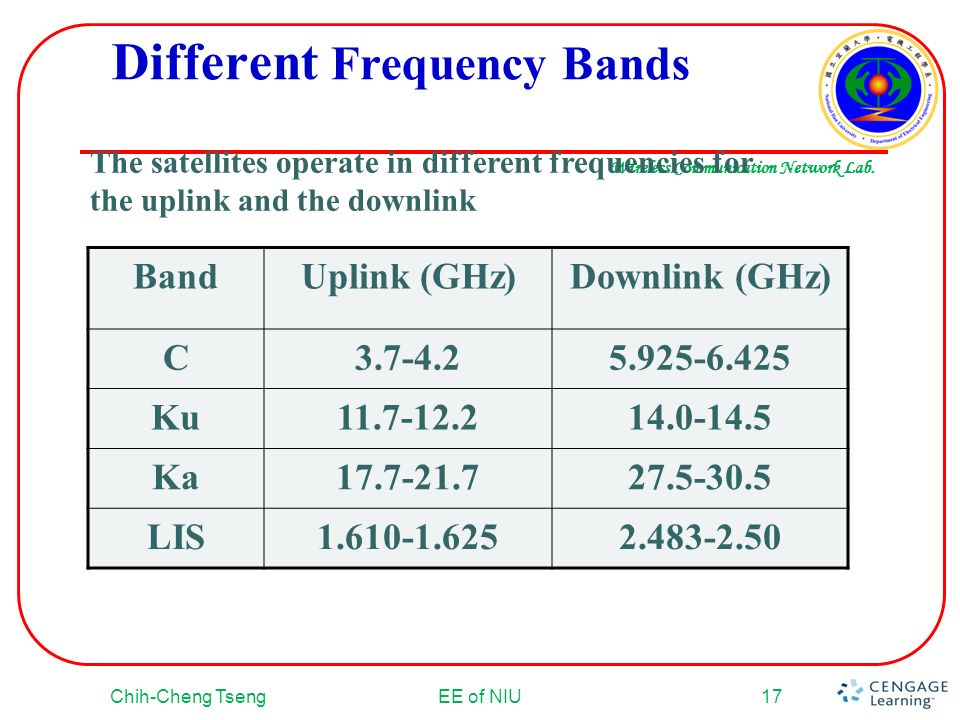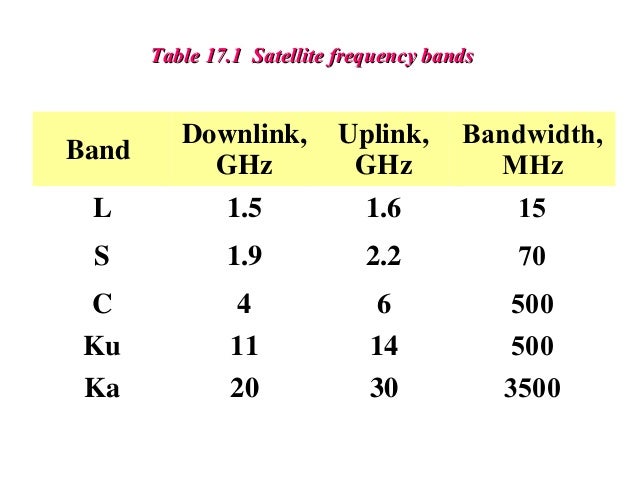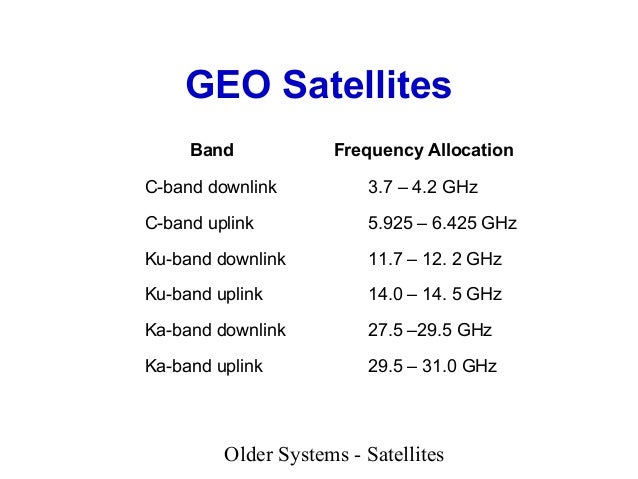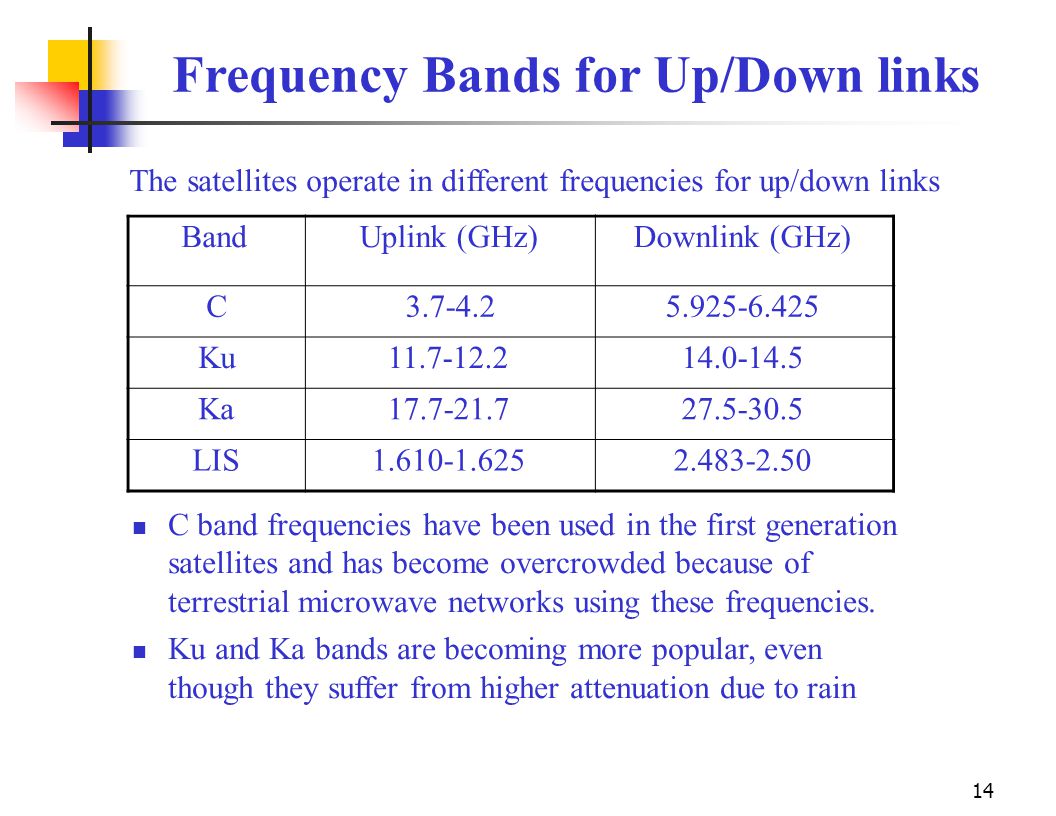Ka band 26 40 ghz communications satellites uplink in either the 27 5 ghz and 31 ghz bands and high resolution close range targeting radars on military aircraft.
Satellite uplink and downlink frequency range.
The description provided here is imprecise as the exact configuration can vary widely.
Simplified summary of ka band satellite allocations annex 1 simplified summary of ka band satellite frequency allocations for communication satellite networks uplink downlink 27 0 ghz 17 3 ghz fss uplink in in regions 1 and 3 band 17 3 18 1 ghz.
The direction from vsats to sallite is known as uplink and the direction from satellite to vsats is known as downlink.
The downlink chain is built using nearly the same equipment in reverse order.
There are a number of radio frequency ranges in use in satellite communications such as c x ku ka and even ehg and v band.
In europe ku band downlink is used from 10 7 ghz to 12 75 ghz for direct broadcast satellite services such as astra.
Between two iridium satellites.
23 18 to 23 38 ghz.
L band in the range from 1621 35 to 1626 5 mhz used for both uplink and downlink.
To prevent interferance caused by multiple sites transmitting on the same frequencies government agencies and standards organizations around the globe try to keep the usage organized and often such controls take the form of government regulations which carry the weight.
Satellite is in a low inclination low earth orbit and not visible north of about 30 degrees north or south of 30.
In some countries the gsm 900 band has been extended to cover a larger frequency range.
Take a look at the drawing below and note the path of devices on the left hand.
Because of its weaker power it requires a larger antenna usually above 1 8m 6ft.
Iridium satellite frequency description.
The term uplink chain is used to refer to the series of pieces of equipment that are used to produce a radio frequency signal for sending out data.
Now as would have thought separate frequency bands are always allocated for uplink and downlink signals often separated by a gap maybe for future allocation since the span of guard bands.
This extended gsm e gsm uses frequency range 880 915 mhz uplink and 925 960 mhz downlink adding 50 channels channel numbers 975 to 1023 and 0 to the original gsm 900 band.
The c band is primarily used for voice and data communications as well as backhauling.
Duplex spacing of 45 mhz is used.
However due to the lower frequency range it performs better under adverse weather conditions on the ground.
Between iridium phone terminal and iridium satellite.
5925 mhz to 6425 mhz is uplink band where as 3700 to 4200 mhz is downlink band.
For real time updates about which mode the satellite is in see the amsat live oscar satellite status page.
